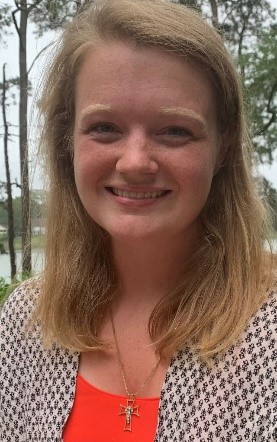By Sarah Wall
Saturday, August 14, is this year’s National Financial Awareness Day, making it the perfect opportunity to ask a simple question: What does it mean to be financially aware? It’s a question we should ask ourselves and each other more often because there are troubling signs too few Americans think about money strategically. Only a quarter of Millennials, born between 1981 and 1996, demonstrate basic fiscal literacy.
How can we become better stewards of our income and assets? The process won’t look the same for all of us. Not only do we all have different monetary goals and priorities, we’re also unique in our financial journeys; while some of us may have been saving for decades, others of us may be new to building a budget. Wherever we start, becoming more fiscally aware can be a major benefit to both spending and saving habits.
Being financially aware means
…knowing your goals.
Before you can work towards becoming more economically savvy, you need to first understand your goals. Are you…
-Saving for a big event, like buying a house or having a baby?
-Putting yourself through graduate school?
-Planning to retire soon?
Or are you planning no major changes or milestones, and you simply want to take charge of your financial future? How you answer those questions will impact your fiscal priorities, so make your near-term goals and objectives your compass as you consider your next steps.
…knowing where you stand.
Many of us think about financial awareness in terms of where we’re going – saving more money, improving our credit score, or making a budget. But knowing where you are today is just as important. Be honest in your assessment of your income, any debts you have, your credit score, and the average percentage of each paycheck you spend. Arming yourself with this information will give you a clear picture of what you need to change to accomplish your objectives.
…opening an IRA, a 401(k), or other retirement savings mechanism.
National Financial Awareness Day was initially established to commemorate the anniversary of President Franklin D. Roosevelt signing the Social Security Act into law. That’s because saving for retirement, which was the Act’s purpose, is critical to strong economic health. While Social Security currently provides the average recipient $1,500 per month or so, many Americans would like to live more fruitfully in retirement than this relatively modest sum would allow. Opening an Individual Retirement Account (IRA), a Roth IRA, or a 401(k) now will ensure you have the money you need when you’re ready to leave the workforce. The earlier you open one of these accounts, the better. Your funds grow in the market, so a lengthier time in the account benefits you not only because of additional deposits over time, but also the compounding returns from the stocks and bonds you’re invested in.
…building a budget.
A budget is a critical tool to your spending and saving goals, both short-term and long-term. Without some budget awareness, spending can easily get out of hand. With 38% of Americans living paycheck to paycheck, the need for budgeting and savings in the budget is clear.
Thankfully, it’s never been easier to create a budget. Phone apps like Mint and PocketGuard connect directly to your bank accounts and credit cards to automatically track spending, giving you up-to-the-minute insight into your spending and saving. As you grow your financial awareness, a budget makes it easy to see how much you’ve saved in any given time frame. Then, you can level up your fiscal aptitude by transferring some of the surplus over to a market account or IRA.
Financial awareness doesn’t look the same for everyone. Still, nearly all of us can incorporate new tools in our toolkit to help eliminate debt, save for the future, prepare us for retirement, and any other goals we set for ourselves. On this National Financial Awareness Day, take a few minutes to assess your monetary health and make a plan to improve your fiscal outlook. By August 14 next year, you might just look at your bank account and be proud you did.

Sarah Wall is a contributing writer for Smart Women Smart Money Magazine. For questions or comments email [email protected].










